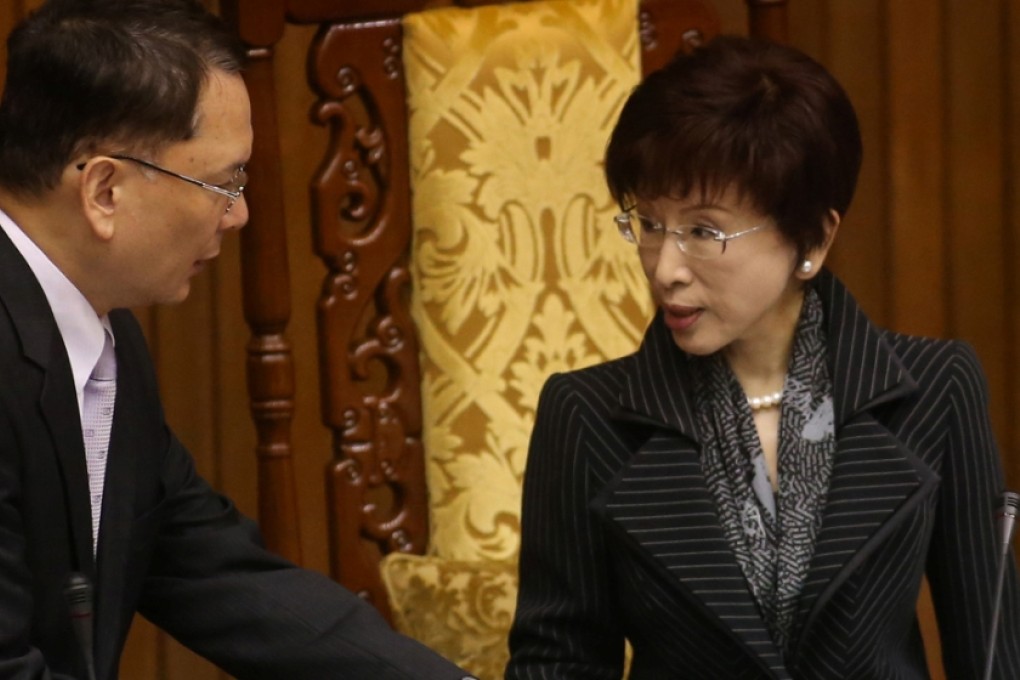KMT stalwarts in no rush to fill Ma Ying-jeou's shoes
There is no time for a power struggle following humiliating defeat in weekend elections, leaders insist, as party ponders its future

Leading members of Taiwan's ruling Kuomintang party stayed tight-lipped about whether they would put themselves forward to be the next chairman - a contest that campaign analysts believe will spark fierce infighting.
President Ma Ying-jeou's decision yesterday to resign as chairman to accept blame for the KMT's crushing defeat in the weekend's local elections is expected to ignite a heated power struggle within the party.
"Competition for the post will be intense because whoever is elected the next KMT chairman will have a better chance of winning the party's nomination to stand in the 2016 presidential election," said Wang Yeh-lih, political science professor at National Taiwan University.
But analysts said that any premature disclosure of such intent by a candidate would leave them open to attack by potential rivals.
The KMT secured only one of the island's six key municipalities and five of 16 cities and counties.
No party heavyweights have so far revealed an ambition to run for the top party post, opting instead to underscore the party's need for reform.
"In the face of our unprecedented, crushing defeat, we have no time for a power struggle," Hung Hsiu-chu, deputy legislature speaker and the third vice-chairwoman of the KMT, said yesterday.